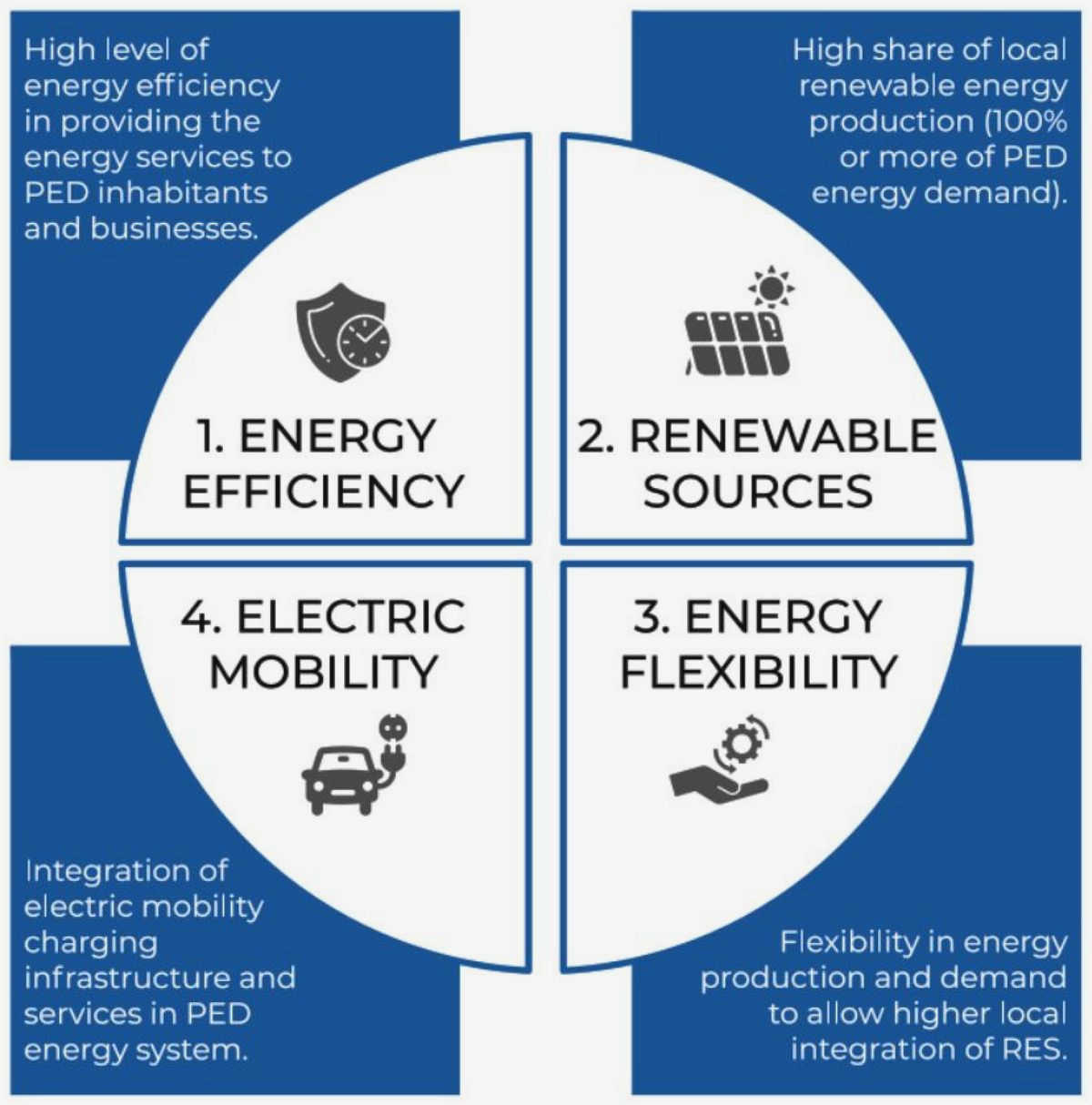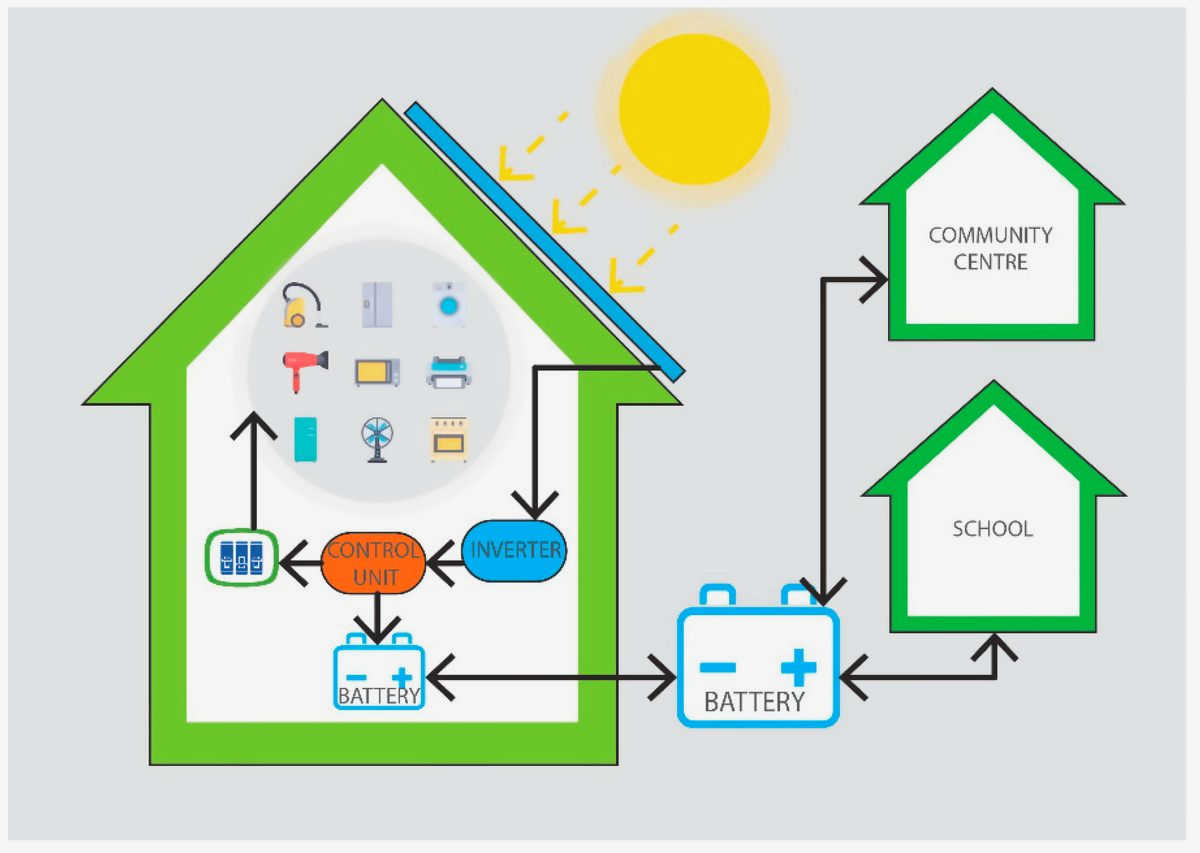In today’s rapidly changing world, finding sustainable solutions to combat climate change and ensure a secure energy future has become a top priority. Renewable energy projects, such as solar, wind, and hydroelectric power, have emerged as viable alternatives to traditional fossil fuel sources. These projects not only offer cleaner and greener energy, but also have the potential to transform communities and foster economic growth.
However, the success and acceptance of renewable energy projects largely depend on the active involvement and support of the local communities. Civil society, including non-governmental organizations (NGOs), community groups, and individuals, plays a significant role in promoting and advocating for these projects. Their engagement is crucial in raising awareness, building consensus, and ensuring the long-term sustainability of renewable energy initiatives.
One of the key contributions of civil society in promoting renewable energy projects is their ability to mobilize and organize communities. Through grassroots campaigns, education programs, and public awareness campaigns, civil society organizations can engage and empower individuals to actively participate in decision-making processes related to renewable energy projects. By encouraging community involvement, civil society promotes transparency, accountability, and inclusivity, ultimately leading to better project outcomes and community acceptance.
Moreover, civil society acts as a bridge between the government, industry, and the local communities. They provide a platform for dialogue and collaboration, allowing different stakeholders to come together and find common ground. By facilitating communication and understanding between these groups, civil society helps to address any concerns or conflicts that may arise during the development and implementation of renewable energy projects, thus building trust and fostering a sense of ownership among the community members.
In conclusion, civil society plays a crucial role in promoting and fostering community engagement in renewable energy projects. By mobilizing communities, facilitating communication, and advocating for transparency and inclusivity, civil society organizations can contribute to the success and long-term sustainability of these initiatives. Their active involvement is vital in ensuring that renewable energy projects not only provide clean and sustainable energy but also bring about positive social, economic, and environmental changes in communities.
The Importance of Community Engagement in Advancing Renewable Energy Projects
The success and growth of renewable energy projects greatly depend on community engagement. In order to implement and expand renewable energy infrastructure, it is crucial to involve and empower local communities. By actively involving community members in the decision-making process, renewable energy projects are more likely to receive widespread support and long-term success.

Community engagement not only builds trust and transparency but also fosters a sense of ownership and pride among community members. When they are directly involved in the planning and development stages, individuals become more invested in the project’s success and are more willing to advocate for renewable energy initiatives in their community.
Furthermore, community engagement encourages collaboration and innovation. By bringing together experts, stakeholders, and local residents, renewable energy projects can benefit from a diverse range of perspectives and ideas. Collaborative decision-making processes ensure that the project’s design and implementation align with the unique needs and values of the community.
One effective way to engage the community in renewable energy projects is through education and outreach programs. These programs can provide information about the benefits of renewable energy, debunk myths and misconceptions, and address concerns or questions from community members. By raising awareness and providing accurate information, education and outreach initiatives help create a supportive environment for renewable energy projects.
Additionally, incentives and financial participation opportunities can motivate community members to actively participate in renewable energy projects. For example, community-based renewable energy projects can offer financial incentives such as reduced energy bills or returns on investments to those who contribute or participate.
Ultimately, community engagement in advancing renewable energy projects is crucial for achieving a sustainable and clean energy future. By involving and empowering local communities, renewable energy projects can benefit from widespread support, diverse perspectives, and innovative solutions that align with the community’s needs and values.
Benefits of Community Participation in Renewable Energy Initiatives
1. Empowerment
Community participation in renewable energy initiatives empowers individuals and local communities by giving them a voice and ownership in the decision-making process. By involving community members in the development and implementation of renewable energy projects, they feel a sense of ownership and pride, which can lead to increased engagement and commitment to the project’s success.
2. Economic Development
Community participation in renewable energy initiatives can have a positive impact on local economic development. With community involvement, there is a greater likelihood of local job creation and economic benefits. Community members may be employed in the construction, operation, and maintenance of renewable energy projects, which can stimulate local economies and improve livelihoods.
3. Social Cohesion
Renewable energy initiatives that involve community participation can help foster social cohesion. By bringing together community members to work towards a common goal, renewable energy projects can unite diverse groups and create a sense of belonging and shared purpose. This can strengthen social bonds within the community and promote cooperation and collaboration.
4. Environmental Stewardship
Community participation in renewable energy initiatives encourages environmental stewardship. When community members are involved in the decision-making process, they gain a greater understanding and appreciation for the environmental benefits of renewable energy. This can lead to increased support for sustainable practices and a commitment to reduce the community’s carbon footprint.
5. Education and Awareness
Participating in renewable energy initiatives can provide educational opportunities for community members. By involving them in the planning and implementation stages, they can learn about the various technologies and processes involved in renewable energy production. This knowledge can then be shared with others, raising awareness and promoting the adoption of renewable energy practices in the wider community.
In conclusion, community participation in renewable energy initiatives offers numerous benefits, including empowerment, economic development, social cohesion, environmental stewardship, and education. By involving community members in these initiatives, we can create a more sustainable future and foster a sense of community ownership and pride in renewable energy projects.
The Role of Civil Society Organizations in Driving Renewable Energy Adoption
Civil society organizations play a crucial role in driving the adoption of renewable energy. These organizations, which include non-governmental organizations (NGOs), community groups, and grassroots movements, are instrumental in raising awareness about the benefits of renewable energy and advocating for its implementation at the local, regional, and national levels.

Advocacy and Policy Influence
Civil society organizations are powerful advocates for renewable energy policies and practices. Their expertise and knowledge on environmental issues and sustainable development allow them to effectively promote renewable energy adoption among the general public and policymakers. Through grassroots campaigns, lobbying efforts, and public demonstrations, they can push for supportive policies, such as feed-in tariffs and tax incentives, that encourage the development and use of renewable energy sources.
Building Community Engagement

Civil society organizations also play a crucial role in building community engagement and involvement in renewable energy projects. They organize educational workshops, community forums, and outreach programs to inform and educate local residents about the benefits and opportunities of renewable energy. By engaging with communities, these organizations can address any concerns or misconceptions, build public support, and foster a sense of ownership towards renewable energy projects.
Facilitating Collaboration and Partnerships
Civil society organizations act as facilitators in bringing together diverse stakeholders and fostering collaboration between them. They create platforms for dialogue and knowledge-sharing, enabling interactions between government, businesses, researchers, and local communities. By facilitating these partnerships, civil society organizations can ensure that renewable energy projects are implemented in a way that is mutually beneficial and inclusive, taking into account the needs and aspirations of all stakeholders involved.
Monitoring and Accountability
Civil society organizations play a critical role in monitoring the implementation and impact of renewable energy projects. They help ensure transparency and accountability in the development and operation of these projects, by monitoring compliance with environmental regulations, advocating for the rights of affected communities, and demanding fair and equitable distribution of benefits. Through their monitoring efforts, civil society organizations contribute to the sustainability and success of renewable energy initiatives.
In conclusion, civil society organizations have a unique and essential role to play in driving the adoption of renewable energy. Their advocacy, community engagement, facilitation of collaboration, and monitoring efforts are instrumental in promoting sustainable and inclusive renewable energy projects. By working together with governments, businesses, and communities, civil society organizations can contribute to a greener and more sustainable future for all.
Building Sustainable Communities through Renewable Energy Projects
Promoting Clean and Green Energy Sources
Renewable energy projects play a crucial role in building sustainable communities. By promoting clean and green energy sources such as solar, wind, and hydropower, these projects help reduce dependence on fossil fuels, minimize greenhouse gas emissions, and mitigate climate change. They provide communities with a reliable and sustainable energy supply, ensuring a greener future for generations to come.
Creating Local Job Opportunities
Renewable energy projects also contribute to the creation of local job opportunities. As these projects require skilled labor for installation, operation, and maintenance, they stimulate economic growth in communities. Local residents can benefit from job training programs and secure employment within the renewable energy sector. This not only boosts the local economy but also enhances the social well-being of the community.
Empowering Communities through Energy Independence
By embracing renewable energy projects, communities can achieve energy independence. Instead of relying on external sources for energy supply, communities can generate their own sustainable energy. This empowers them to have greater control over their energy needs and reduces vulnerability to fluctuations in energy prices and supply. It also fosters a sense of self-sufficiency and resilience within the community.
Promoting Environmental Stewardship
Renewable energy projects promote environmental stewardship within communities. By choosing clean energy sources over traditional fossil fuels, communities can contribute to the preservation of natural resources and habitats. They can reduce air and water pollution, protect biodiversity, and minimize the ecological footprint. This commitment to the environment fosters a sense of shared responsibility and encourages sustainable practices among community members.

Facilitating Community Engagement and Collaboration
Renewable energy projects provide opportunities for community engagement and collaboration. They encourage dialogue among community members, local organizations, and government institutions. By involving the community in decision-making processes, these projects foster a sense of ownership and collective responsibility. Community members can actively participate in planning, implementation, and monitoring, ensuring that the projects align with their needs and priorities.
Conclusion
Building sustainable communities through renewable energy projects is a multi-faceted endeavor. By promoting clean energy sources, creating local job opportunities, empowering communities, promoting environmental stewardship, and facilitating community engagement, these projects contribute to the overall well-being and development of communities. They pave the way for a more sustainable and resilient future, where communities are able to thrive while preserving the environment for future generations.
Engaging Local Stakeholders in the Decision-Making Process
Engaging local stakeholders in the decision-making process is crucial for the successful implementation of renewable energy projects. Local communities are directly impacted by these projects and their input and involvement can help to ensure that the projects meet their needs and address their concerns effectively. In order to engage local stakeholders, it is important to create opportunities for open dialogue and meaningful participation.
Creating Opportunities for Dialogue
One way to engage local stakeholders is to create opportunities for dialogue. This can be done through public consultations, community meetings, and stakeholder workshops. These events provide a platform for the community to voice their opinions, express their concerns, and provide feedback on the proposed renewable energy projects. It is important that these events are accessible to all members of the community and that there is a clear and transparent process for gathering and considering their input.
Meaningful Participation
Ensuring meaningful participation of local stakeholders is essential. This means providing them with the necessary information and resources to understand the project and its potential impacts. It also means involving them in the decision-making process from the early stages, allowing them to contribute their knowledge, expertise, and perspectives. This can be done through the formation of advisory committees or working groups that consist of diverse stakeholders, including community members, local organizations, and relevant experts.
In addition, it is important to educate and empower local stakeholders so that they can actively engage in the decision-making process. This can be done through capacity-building workshops, information sessions, and the provision of resources and tools. By empowering local stakeholders, they can play an active role in shaping the renewable energy projects and ensuring that they align with the needs and aspirations of the community.
Increasing Public Awareness and Support for Renewable Energy
Raising public awareness about the benefits of renewable energy is crucial for promoting its adoption and garnering support from the community. One effective way to do this is through educational campaigns that highlight the environmental, economic, and social advantages of renewable energy sources.
Engaging schools and universities: Educational institutions play a pivotal role in shaping the perspectives and knowledge of future generations. By incorporating renewable energy topics into their curriculum, schools and universities can help raise awareness about the importance of transitioning to renewable energy sources. This can include teaching students about the science behind renewable energy, the impact of fossil fuel consumption, and the potential for job creation in the renewable energy sector.
Community outreach programs: Hosting community outreach programs can help bridge the gap between renewable energy projects and the local population. These programs can include public forums, workshops, and informational sessions that provide residents with an opportunity to learn about renewable energy options, voice their concerns, and ask questions. By actively involving the community, these initiatives can lead to greater understanding and support for renewable energy projects.
Public-private partnerships: Collaborating with private sector organizations can help expand the reach of renewable energy awareness campaigns. Companies involved in the renewable energy industry can sponsor events, provide resources, and share their success stories to inspire others. These partnerships can also help showcase the economic benefits of renewable energy, such as job creation and local economic development, which can further motivate public support.
Online platforms and social media: Utilizing online platforms and social media is an effective way to reach a wide audience and increase public awareness about renewable energy. Creating engaging and informative content, such as videos, infographics, and articles, can help educate the public about renewable energy technologies, policies, and incentives. Social media platforms can also be used to facilitate discussions, share success stories, and connect individuals who are interested in renewable energy initiatives.
Collaboration and knowledge sharing: Encouraging collaboration among stakeholders, including government entities, civil society organizations, and research institutions, can foster a culture of knowledge sharing and innovation. By sharing research findings, best practices, and success stories, these collaborations can contribute to a greater understanding of renewable energy and build a stronger case for its adoption. This knowledge-sharing approach can also help address any misconceptions or doubts surrounding renewable energy and create a supportive environment for its growth.
Empowering Communities through Renewable Energy Education and Training
Renewable energy education and training programs play a crucial role in empowering communities to embrace sustainable energy practices. By providing knowledge and skills related to renewable energy technologies, these programs allow individuals to actively engage in the transition towards cleaner and more sustainable energy sources.
Increasing Awareness: Renewable energy education programs help to increase awareness about the benefits of utilizing renewable energy sources. They provide communities with a better understanding of the environmental, economic, and social advantages of renewable energy, encouraging them to support and participate in renewable energy projects.
Building Capacity: Education and training programs enhance the capacity of community members to actively contribute to the development and implementation of renewable energy projects. By acquiring technical skills and knowledge, individuals can play a more active role in project planning, implementation, and maintenance.
Enabling Local Employment: Renewable energy education and training initiatives also create opportunities for local employment. By equipping community members with the necessary skills to work in the renewable energy sector, these programs help to stimulate economic growth and reduce unemployment rates within the community.
Fostering Innovation: Education and training programs in renewable energy encourage innovation and creativity within communities. By providing individuals with the knowledge and tools to explore new ideas and solutions, these programs empower communities to find unique and localized approaches to renewable energy projects.
Conclusion:
Empowering communities through renewable energy education and training is crucial for the successful implementation of sustainable energy practices. By increasing awareness, building capacity, enabling local employment, and fostering innovation, these programs play a vital role in driving the transition towards a more sustainable future.
Case Studies: Successful Community Engagement in Renewable Energy Projects
1. Wind Farm Project in Small Coastal Town
In a small coastal town, a wind farm project was initiated with the goal of harnessing the town’s strong coastal winds to generate clean and renewable energy. Community engagement was a crucial aspect of the project’s success. The local government collaborated with environmental organizations to organize town hall meetings, open forums, and workshops to educate residents about the benefits of wind energy and address any concerns or misconceptions.

The project team also actively sought input from the community through surveys and feedback sessions, allowing residents to have a say in the decision-making process. By involving the community from the early stages of planning, the project gained widespread support and acceptance. The wind farm project successfully demonstrated how community engagement can lead to the successful implementation of renewable energy projects.
2. Solar Power Initiative in Urban Neighborhood
An urban neighborhood in a city decided to implement a solar power initiative to promote clean energy and reduce dependence on fossil fuels. To ensure successful community engagement, the local government collaborated with community organizations and formed a dedicated task force consisting of neighborhood residents, sustainability experts, and local businesses.
The task force organized educational workshops, guided tours to solar installations, and interactive sessions where residents could learn about solar technology and its benefits. Additionally, the initiative launched a community outreach program to provide financial incentives and support to homeowners who wanted to install solar panels on their rooftops.
The combination of education, incentives, and community involvement resulted in a high level of participation and support from the neighborhood residents. The solar power initiative not only succeeded in promoting renewable energy but also fostered a sense of community and collaboration.
3. Biomass Energy Plant in Rural Farming Community
A rural farming community decided to set up a biomass energy plant to leverage their abundant supply of agricultural waste and generate renewable energy. Community engagement played a crucial role in ensuring the project’s success. The project team actively involved local farmers, landowners, and residents to create a sense of ownership and shared responsibility.
Engagement strategies included organizing workshops on biomass energy, field trips to existing biomass plants, and collaborative planning sessions to address any concerns regarding land use, environmental impacts, and economic viability. Additionally, the project team worked closely with local schools to educate students about the benefits of biomass energy, creating a ripple effect of community engagement.
Through effective community engagement strategies, the biomass energy plant gained the trust and support of the rural farming community. The project not only provided a sustainable source of energy but also brought economic opportunities and revitalization to the community.
Overcoming Challenges in Community Engagement for Renewable Energy
Engaging communities in renewable energy projects can be a challenging task due to various factors. One of the main challenges is the lack of awareness and understanding among community members about the benefits of renewable energy. Many people are still not fully aware of the environmental and economic advantages of renewable energy sources, and this lack of knowledge can hinder community engagement in such projects.
Furthermore, another challenge is the perception of renewable energy projects as being intrusive or disruptive to the community. Some residents may have concerns about the visual impact of wind turbines or solar panels, or the potential noise levels associated with these technologies. Addressing these concerns and providing accurate information about the design and operation of renewable energy projects is essential to overcome these barriers to community engagement.
Additionally, financial considerations can also pose a challenge in community engagement for renewable energy. The upfront costs of implementing renewable energy projects can be significant, and this can create skepticism or resistance among community members. Finding innovative funding mechanisms, such as community-based financing or government incentives, can help overcome these financial barriers and encourage community participation in renewable energy initiatives.
Lastly, effective communication and transparency are key to overcoming challenges in community engagement for renewable energy. Providing clear and accessible information about the project objectives, benefits, and potential environmental impacts is essential to gain community trust and support. Establishing channels for open dialogue and involving community members in the decision-making process can also help mitigate concerns and foster a sense of ownership and involvement in renewable energy projects.
Policy Recommendations to Enhance Community Participation in Renewable Energy
1. Establish clear and transparent policies: Governments should develop and implement clear and transparent policies that outline the roles and responsibilities of communities in renewable energy projects. This includes clearly defining the process for community involvement, such as public consultations, decision-making processes, and benefit-sharing mechanisms.
2. Provide financial and technical support: Governments should provide financial and technical support to communities to help them participate effectively in renewable energy projects. This can include providing funding for community engagement activities, capacity-building programs, and technical assistance to assess and develop renewable energy projects.
3. Foster collaboration between communities, NGOs, and industry: Governments should facilitate collaboration between communities, non-governmental organizations (NGOs), and industry stakeholders to ensure meaningful community engagement in renewable energy projects. This can include establishing platforms for dialogue, sharing information and best practices, and fostering partnerships between communities and industry players.
4. Encourage local ownership and benefits: Governments should incentivize and promote local ownership of renewable energy projects, such as through community ownership or cooperative models. This can help ensure that communities have a direct stake in the projects and benefit economically from their development.
5. Develop comprehensive community engagement guidelines: Governments should develop comprehensive guidelines for community engagement in renewable energy projects. These guidelines should outline best practices, highlight the importance of community involvement, and provide step-by-step guidance for developers and communities to follow throughout the project lifecycle.
6. Enhance public awareness and education: Governments should invest in public awareness and education campaigns to increase understanding and support for renewable energy projects. This can include disseminating information about the benefits of renewable energy, addressing common misconceptions, and highlighting the positive impact that community participation can have on project outcomes.
Overall, these policy recommendations aim to enhance community participation in renewable energy projects by providing clear guidelines, financial and technical support, fostering collaboration, promoting local ownership, and increasing public awareness. By implementing these recommendations, governments can ensure that communities are actively engaged in the transition to renewable energy and can reap the economic, social, and environmental benefits that come with it.
Collaboration between Civil Society, Governments, and Businesses for Sustainable Energy Transition
The transition to sustainable energy sources requires collaboration between civil society, governments, and businesses. Each sector has a unique role to play in ensuring the success of renewable energy projects and achieving the goal of a sustainable energy future.
Civil society: Civil society organizations, such as environmental groups and community associations, play a crucial role in promoting renewable energy projects. They can mobilize public support and raise awareness about the benefits of sustainable energy. Civil society also has the power to hold governments and businesses accountable for their actions and advocate for policy changes that support renewable energy development.
Governments: Governments have the authority to set policies and regulations that can either hinder or facilitate the transition to sustainable energy. They can provide incentives, such as tax credits and grants, to encourage businesses and individuals to invest in renewable energy. Governments also have the power to establish renewable energy targets and create a favorable regulatory environment for renewable energy projects to thrive.
Businesses: The private sector, including both large corporations and small businesses, has a crucial role to play in the transition to sustainable energy. Businesses can invest in renewable energy technologies and develop innovative solutions to address energy challenges. They can also collaborate with governments and civil society to develop sustainable energy strategies and support local communities in adopting renewable energy practices.
Collaboration: Collaboration between civil society, governments, and businesses is essential for a successful transition to sustainable energy. By working together, these sectors can leverage their respective strengths and expertise to overcome challenges and drive the adoption of renewable energy. This collaboration can involve joint research and development projects, sharing of best practices, and coordinated advocacy efforts to promote policy changes that support renewable energy.
Benefits: The collaboration between civil society, governments, and businesses can lead to numerous benefits. It can accelerate the deployment of renewable energy projects, create jobs and economic growth, and reduce greenhouse gas emissions. Moreover, collaboration can empower local communities and enable them to actively participate in decision-making processes related to sustainable energy development.
In conclusion, collaboration between civil society, governments, and businesses is crucial for a sustainable energy transition. By working together, these sectors can drive the adoption of renewable energy, promote policy changes, and create a sustainable future for generations to come.





